Team Canada's 5 major questions at the Beijing Olympics
The Winter Olympics have opened in Beijing. Keep an eye on these five Canadian storylines as the Games progress.
Who will step up for men's hockey?
NHLers are absent again, so Canada's Olympic players hail from six pro leagues and the college and junior ranks. They range in age from 19 to 37 and their career stages vary accordingly.
Captain Eric Staal, the 1,000-point NHL scorer and 2010 Olympic champion, skated in last summer's Stanley Cup Final and played four tune-up games in the AHL last month. His fresh-faced teammates include Owen Power, the University of Michigan defenseman drafted first overall last year, and potent OHL scorer Mason McTavish, the No. 3 pick in 2021.
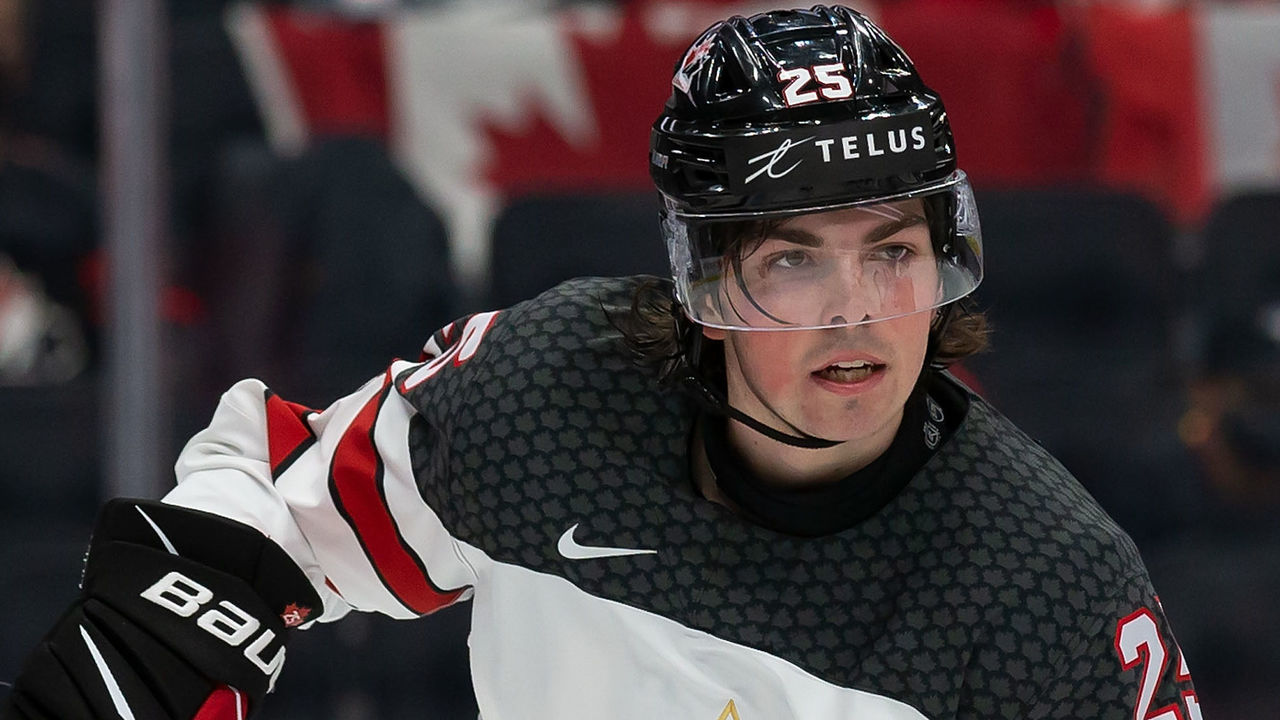
Like defenseman Jason Demers, forwards David Desharnais and Daniel Winnik were decent NHLers for many seasons - Winnik played 798 games for eight teams - before they signed in Europe. Corban Knight left for Beijing as the KHL's third-leading scorer. Toronto Marlies winger Josh Ho-Sang, once a first-round pick of the New York Islanders, never stuck in the NHL but has game-breaking skill that's rare on the roster.
The goalies are a mishmash. Devon Levi backstopped Canada to world junior silver in 2021 and owns a .948 save percentage as an NCAA rookie at Northeastern. Edward Pasquale is an 11-year pro who played three NHL games in 2018-19. Head coach Jeremy Colliton could prioritize upside or experience in net, or he could start the third option, five-year pro Matt Tomkins, who is playing this season in Sweden.
Fifteen members of the 25-man team are in their 30s - so is Colliton, incidentally - and three of them won bronze for Canada at PyeongChang in 2018. In lieu of Connor McDavid and Nathan MacKinnon debuting as Olympians, Maxim Noreau, Eric O'Dell, and Mat Robinson are off to their second Games.
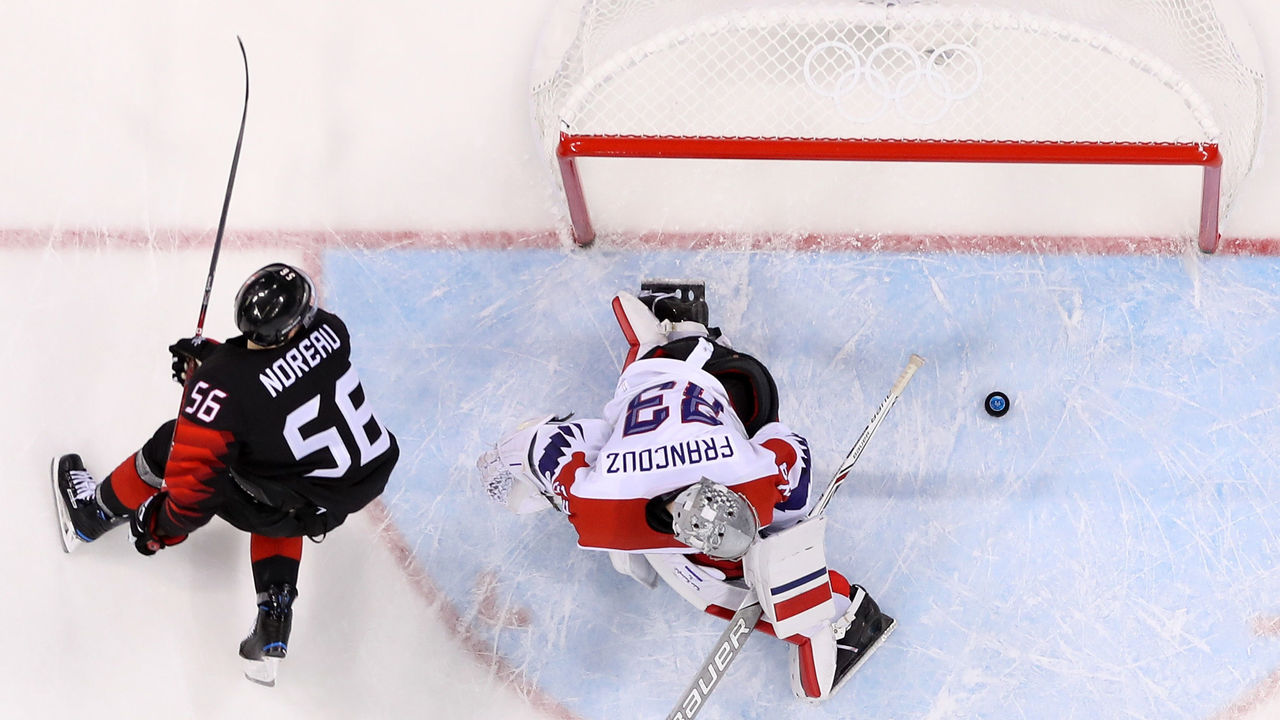
Noreau, a nine-year veteran of Switzerland's National League, tallied two goals and seven points in six games in PyeongChang to lead Canada in scoring. He'll wear an "A" for Canada, which starts next week's tournament with round-robin matchups against Germany, the U.S., and host China.
"I played six (NHL) games, I came to Europe pretty early in my career, and a lot of people questioned if that was the right move or not," Noreau told theScore in 2020, reflecting on how he made the most of his first Olympic opportunity.
"I have no regrets. I'm very happy here. My family's very happy. We've been in Switzerland forever. But I think playing in a tournament like (the Olympics) - I wanted to show people that, hey, I'm a good player."
Can the curling teams bounce back?
Olympic men's and women's bonspiels have been played since 1998, and Canada has medaled in 10 of them. Mixed doubles gold in 2018 augmented the national edge: no country has finished on or atop more curling podiums.
Brad Gushue and Jennifer Jones, the men's and women's skips in Beijing, are former Olympic champions who waited a while to return to the stage. They'll be out to avenge Kevin Koe's fourth-place finish in PyeongChang and Rachel Homan's slip to sixth.
Between them, Gushue and Jones own nine Canadian championships and three world titles, plus Olympic gold from Turin in 2006 (Gushue) and Sochi in 2014 (Jones). The Jones rink went undefeated in 11 matches at Sochi. Her longtime third, Kaitlyn Lawes, paired with John Morris to achieve mixed doubles glory four years ago. Jones and Gushue's seconds, Jocelyn Peterman and Brett Gallant, happen to be engaged.
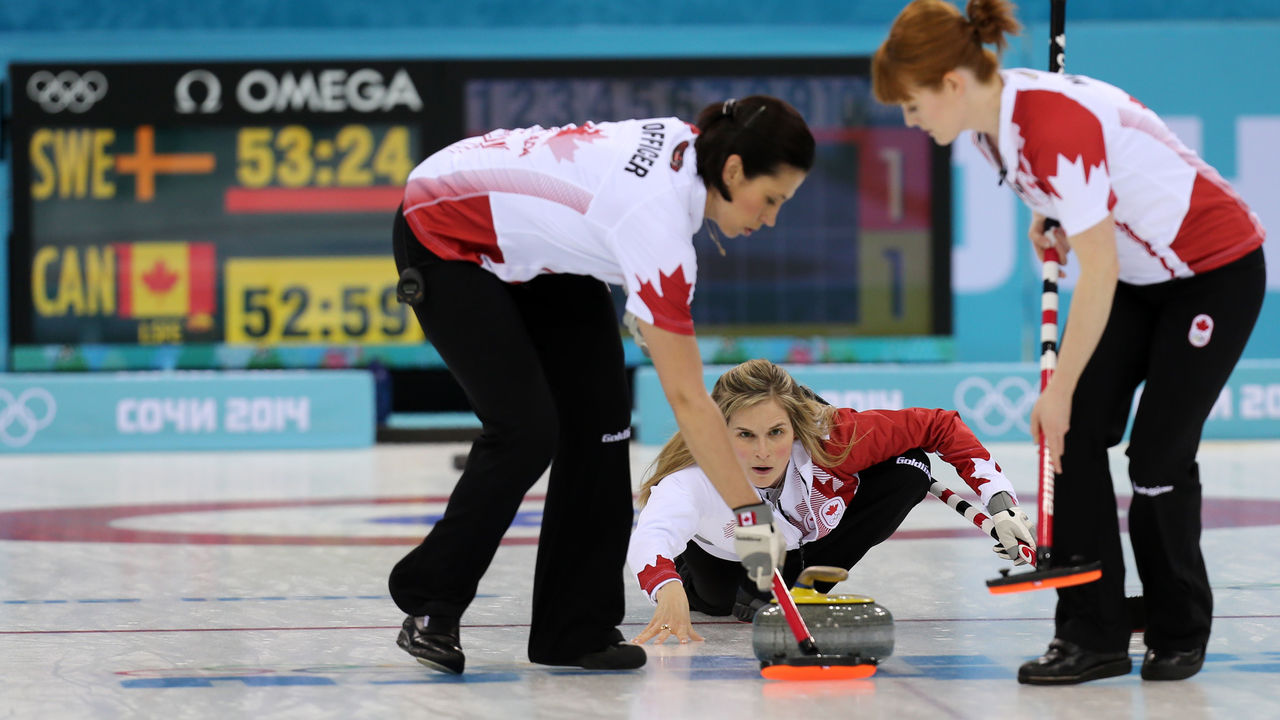
World curling is deeper now than it was in Canada's heyday. The eventual champion U.S. upset Koe's team at PyeongChang, while South Korea and Japan won their first Olympic medals at Homan's expense. Those letdowns inspired some introspection about how Canada picks its Olympic rinks. Men's and women's national trials go down about two months before the Games, which tests but risks exhausting the winners.
Speaking to theScore before he left for Beijing, Gushue shared his preferred solution: hold Canadian trials about 10 months ahead of the Olympics, at the end of the previous season. At that point, the losing men's and women's skips could shift their focus to mixed doubles. Homan and Morris were handpicked to pair up in Beijing after COVID-19 nixed those national trials around New Year's.
"If we give ourselves that little bit more cushion by pushing (each event's trials) back," Gushue said, "there's a lot of things that are corrected from the format we have right now."
In any case, that's a dilemma to resolve after Beijing. Homan and Morris are already in the midst of contesting the mixed doubles round robin, while Gushue and Jones open play next week.
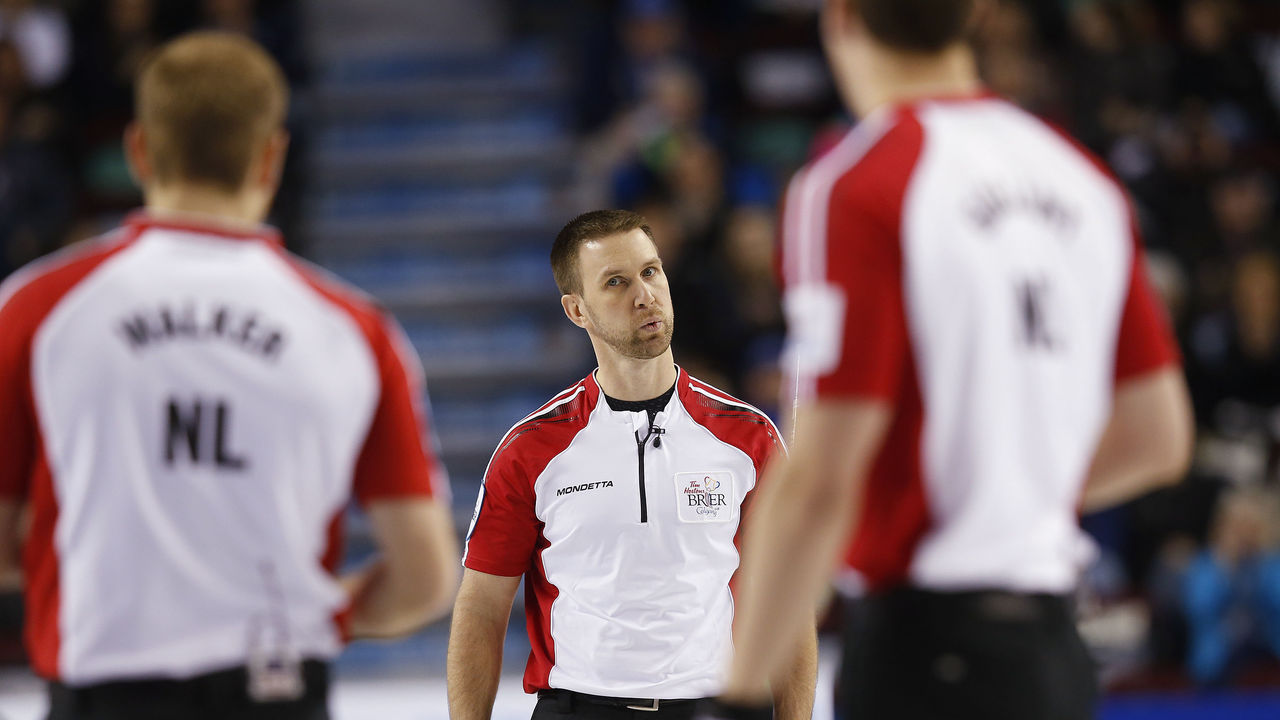
Is Kingsbury inevitable in moguls?
Mikael Kingsbury is favored to dominate Saturday's men's moguls final, which begins at 6:30 a.m. ET. Winning would crown him the event's back-to-back champion - his decisive run in PyeongChang was four points better than the silver medalist - and give him three Olympic medals. (He placed second in Sochi.)
Kingsbury's World Cup feats are untouchable. For nine straight years from 2012 to 2020, he was named the top overall skier on the men's freestyle circuit, his excellence perched upon the 62 moguls races he won in this span.
Fractured vertebrae that Kingsbury suffered in a training fall sidelined him early in 2021, but he's long since returned to peak form and leads the 2021-22 World Cup standings. He's won four of seven events to date this season, while Japan's Ikuma Horishima, Kingsbury's lone serious challenger, has won the other three.
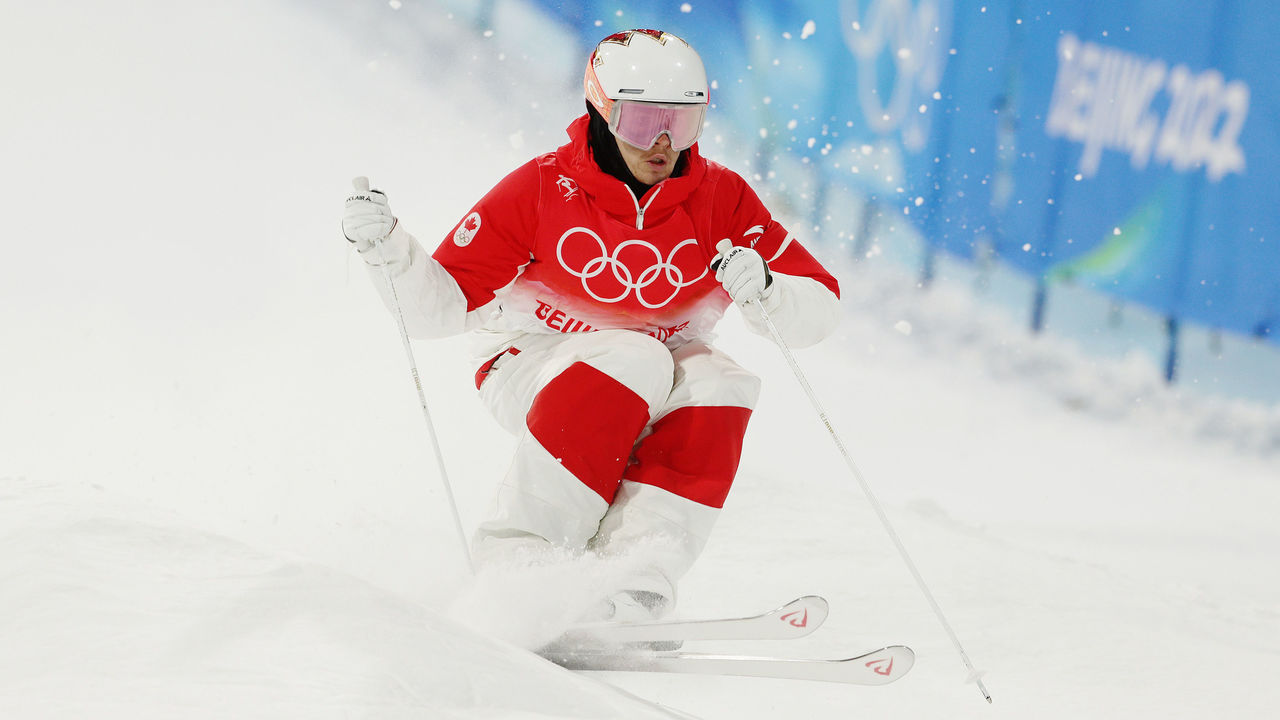
"I feel I’m in a better position than I was in 2018. I’m a better skier," Kingsbury told The Canadian Press recently. “I’ll be the only skier (in Beijing who's won gold), so that plays into my advantage. I still like my odds better than my competitors, so I’ll always bet on myself first.”
In Beijing, Kingsbury and Justine Dufour-Lapointe could become the first Canadian skiers to medal at three straight Games. (Mark McMorris has the same opportunity in snowboarding.)
Dufour-Lapointe won moguls gold at Sochi and came second at PyeongChang, 0.09 points behind France's Perrine Laffont. She finished 10th in qualifying Thursday to advance to Sunday's women's final. Naturally, Kingsbury qualified first on the men's side.
Constrained by the nature of his specialty - moguls Olympians have only one event to contest - Kingsbury would need to shine in Beijing and again in 2026 to break into the ranks of Canada's top medal earners. For context: If Charles Hamelin, the 37-year-old short track speedskater, manages to medal this month, he'll equal Cindy Klassen's record six at a Winter Games.
Will the figure skaters expedite the rebuild?
As in curling, Canada's figure skaters usually deliver a couple of podium performances. They won two gold and two bronze medals in PyeongChang, outshining the powerhouse Russian and American programs to top the field.
Seven skaters helped elevate Canada to the podium in the team, women's, pairs, and ice dance events. Five of them have retired: singles skaters Patrick Chan and Kaetlyn Osmond, pairs skater Meagan Duhamel, and the ice dance legends Tessa Virtue and Scott Moir. Gabrielle Daleman didn't qualify for Beijing after enduring a hellacious spate of injuries this quadrennial.
The seventh skater, Eric Radford, took a few seasons off but returns to the Games with new pairs partner Vanessa James, who placed fifth in PyeongChang competing for France alongside Morgan Cipres. Partners since last spring, James and Radford both tested positive for COVID-19 in December, then withdrew from last month's national championships before the free skate. They made the Olympic team anyway.
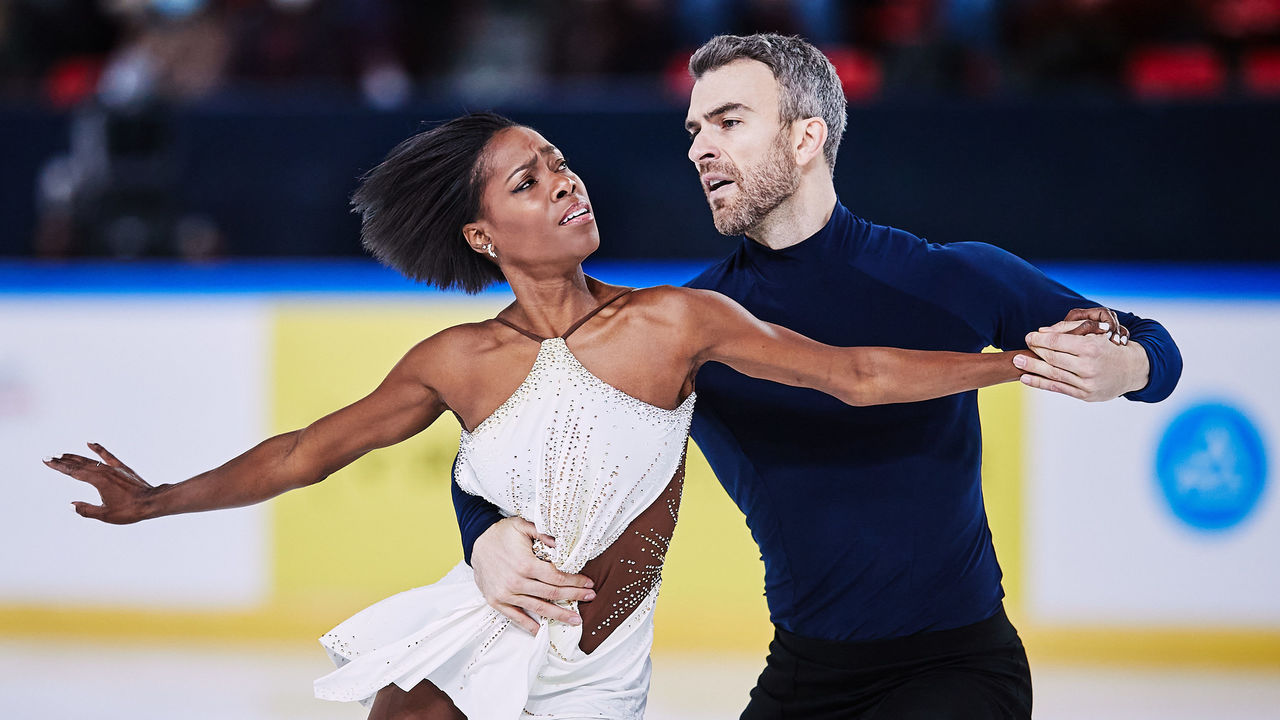
"If you look at the international season, Vanessa and Eric out of all our pairs teams had the strongest scores," Mike Slipchuk, Skate Canada's high-performance director, told The Canadian Press after nationals.
"We look at the body of work of all athletes, and we want to make the best assessment for the strongest team we feel has the best ability for us at the Games."
Five peripheral members of the 2018 Olympic team have risen to leading roles.
Piper Gilles and Paul Poirier nabbed bronze in ice dance at last year's world championships, excelling outside of Virtue and Moir's shadow. Kirsten Moore-Towers and Michael Marinaro, Canada's top pairs duo, placed sixth at those worlds; so did men's skater Keegan Messing. Meanwhile, national women's champ Madeline Schizas is one of Canada's youngest Olympians at age 18.
The team competition in Beijing wraps up late Sunday night Eastern time, followed in order by the men's event, ice dance, the women's event, and pairs.
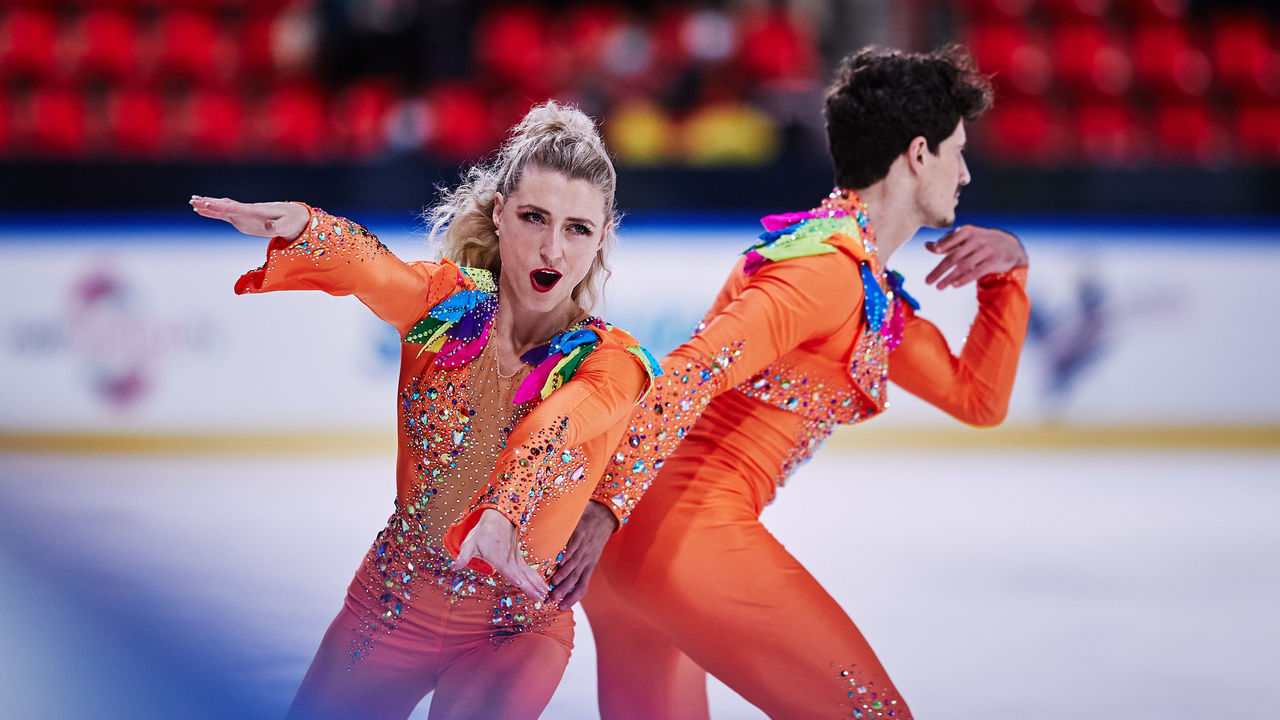
How many medals will Canada win?
This week, the data analytics firm Gracenote predicted Canada will bring home six gold medals and 22 in total. In Gracenote's forecast, that performance equated to fifth in the overall table behind Norway, Germany, Russian athletes, and the United States.
Six victories would be Canada's fewest at a Winter Games since Nagano in 1998. Seventeen medals at Salt Lake City in 2002 is the national low this century. Canada set national records in both categories at recent Olympics, bagging 14 gold medals at home in Vancouver in 2010 and ascending 29 podiums in PyeongChang in 2018.
Expectations are lower in Beijing for a range of athletes, including the figure skaters and Canadian lugers.
Three-time bobsleigh medalist Kaillie Humphries competes for the U.S. now, but Christine de Bruin ranks fourth internationally in the two-woman discipline. (Elana Meyers Taylor, the American world No. 1, is in COVID-19 protocol.) De Bruin and Cynthia Appiah are contenders in monobob, a new Olympic event, while Justin Kripps - who piloted Canada to two-man gold in 2018 - ranks second in the world in two-man and four-man.
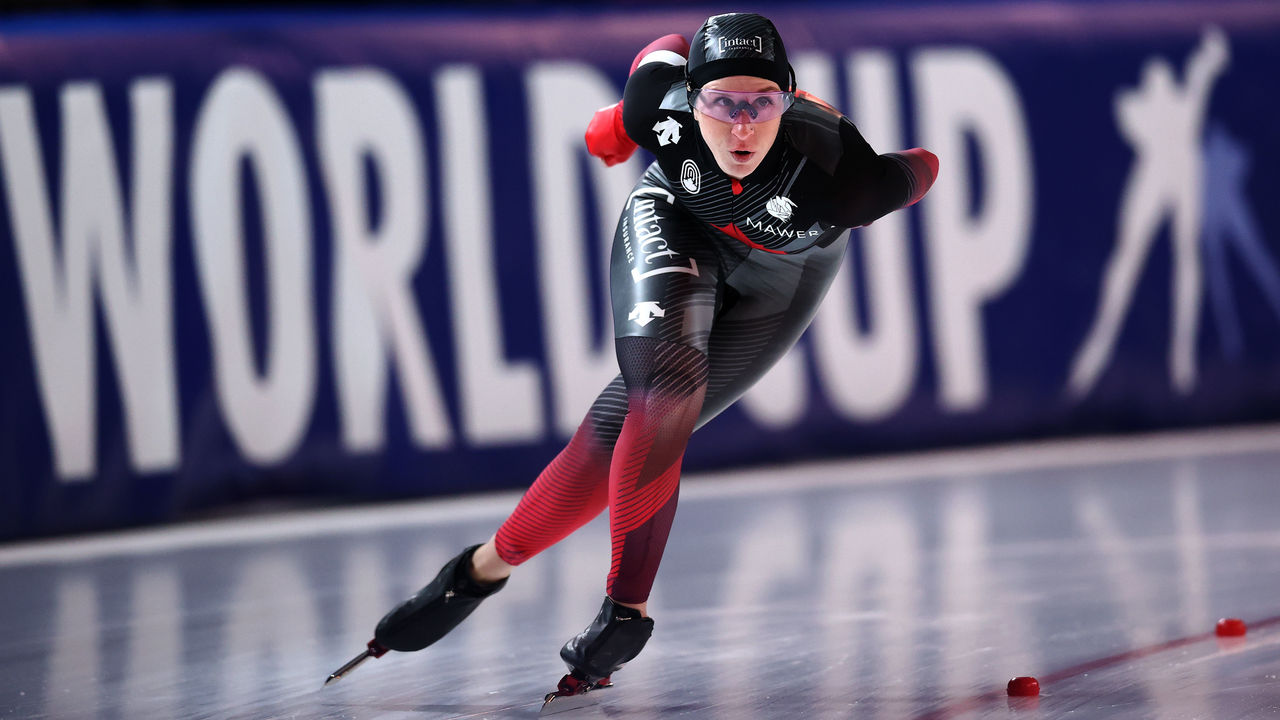
Medals in other sports seem like safe bets.
Canada's women's hockey team has appeared in every Olympic final and eclipsed the U.S. at the world championships last summer.
Including Kingsbury and Dufour-Lapointe, seven freestyle skiers have won Olympic gold before and/or rank top five in the world this season. The others are the halfpipe riders Rachael Karker and Cassie Sharpe and the ski cross racers Brady Leman, Brittany Phelan, and Marielle Thompson.
Four snowboarders who medaled in slopestyle or big air in PyeongChang - McMorris, Sebastien Toutant, Max Parrot, and Laurie Blouin - helm Canada's deep roster.
In long track speedskating, Canadians lead the World Cup standings in the men's 500m (Laurent Dubreuil), the women's long distances (Isabelle Weidemann), the women's mass start (Ivanie Blondin), and the women's team pursuit (Blondin, Weidemann, and Valerie Maltais). PyeongChang two-time medalist Ted-Jan Bloemen is the world No. 2 men's long-distance skater.
Kim Boutin, the short track star, could match Hamelin's career podium count by repeating as Olympic medalist in her best events, the 500m and 1,000m. Courtney Sarault is a medal threat at 1,000m and 1,500m and Pascal Dion is the world's top men's skater at 1,000m.
Due to COVID-19, Olympic results have never been harder to predict. Omicron's emergence upended training schedules, while the mixed doubles trials, Canada's final long track qualifier, and women's hockey exhibition games all were canceled ahead of Beijing. Testing positive there could foil a contender's coronation, or sideline any Olympian from their event. Keep healthy and their turn in the spotlight awaits.
Nick Faris is a features writer at theScore.
HEADLINES
- Slovakia in line to win Group B after late goal in loss to Sweden
- 5 key takeaways from Canada's hard-fought victory over Switzerland
- Report: Fiala to have season-ending surgery after Olympic injury
- Canada's Morrissey won't play vs. France, not ruled out of Olympics
- McDavid, MacKinnon shine in Canada's win over Swiss